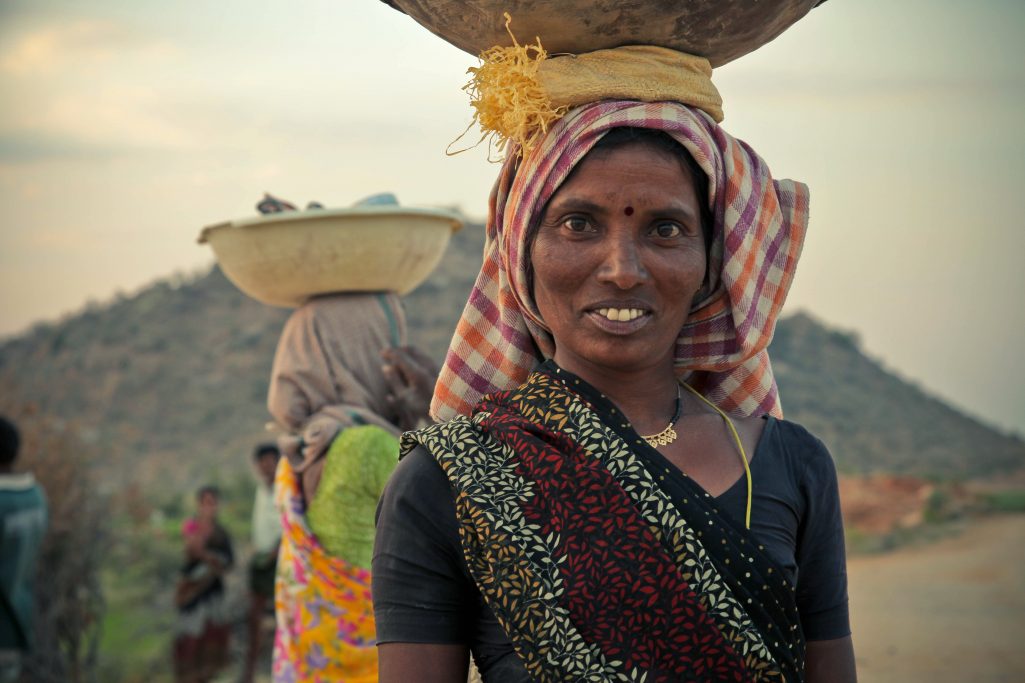For over 70 years Oxfam has been working to eradicate poverty and build stronger, fairer and more inclusive communities. This piece argues that legal empowerment is a crucial tool in helping to eradicate poverty and increase fairness worldwide.
Launched in June 2015, Oxfam’s Lawyers Against Poverty group was created to focus specifically on the vital role justice can play in ending poverty. From 13 to 20 June it is the first Lawyers Against Poverty week where a range of events and activities will be taking place in London and Oxford to encourage people to get involved. In advance of the coming week of activities, Lawyers Against Poverty is thinking about a new area of focus – legal empowerment.
What is legal empowerment?

In simple terms, it means knowing and being able to access our rights. Many of the world’s poor cannot access the protection of the law; poverty is commonly both a cause and consequence of this.
Legal empowerment occurs when people who are marginalised or living in poverty use the law to advance their rights and their interests in relation to the state and certain institutions. It is a process through which vulnerable people are better protected and more able to access the law.
When people living in poverty are legally empowered it leads to their voices being heard. This in turn offers greater influence on social policies, reforms of decision-making bodies and legal changes.
Once empowered, poor communities have an opportunity to improve the realisation of their rights as citizens, home or property owners, and workers.
What is legal empowerment not?

Legal empowerment is not merely a restructure of those legal services at the top such as the judiciary, it is far broader and promotes change even before the access point of legal services.
How can we make sure everyone knows and can access their rights?

There are many socio-political factors which have a bearing on how people access justice and realise their rights. The nature of the political climate, prevailing social norms and the distribution of power and resources clearly have an impact on the accessibility of legal systems and justice.
Although legal empowerment is country and context-specific, there are some key elements which help define legal empowerment as an approach, which include:
- Partnership – seeing the poor and marginalised as partners rather than recipients;
- Solution-focused – demonstrating through individual cases that even in an environment marked by inequality, justice is possible;
- Community Advisors – using advisors and paralegals who are embedded in the communities in which they work is a cost effective way of delivering legal services;
- Plural legal systems – utilising available traditional, customary or formal legal systems and advocating for reforms of these systems as necessary;
- Providing a voice – by enabling communities to have a say in public policy and governance increases empowerment;
- Employing a variety of tools –offering education, information, mediation and other tools can be effective in resolving disputes.
What are the effects of legal empowerment?

Legal empowerment provides a range of benefits that help alleviate poverty and disadvantage. Some of the more general benefits include:
- access to justice;
- gender equality;
- opening up economic opportunities;
- enhancing social justice;
- combating impunity and promoting accountability;
- enhancing the justice system and making the private sector more accountable.
Our message

Overall legal empowerment is an opportunity to ensure development has a rights-based focus. When marginalised and poor communities are included as partners, educated about their rights, have access to justice and have their voices heard they have a real opportunity to help themselves out of poverty.
Lawyers Against Poverty is interested in hearing from anyone who would like to get involved in working with us on legal empowerment.
- RightsInfo is all about people knowing their rights. For more on your rights check out our page dedicated to the theme.
- For more on how you can use your rights to get justice, check out our Explainer on the Human Rights Act.
- For our 2-minute animation on human rights, click here.






